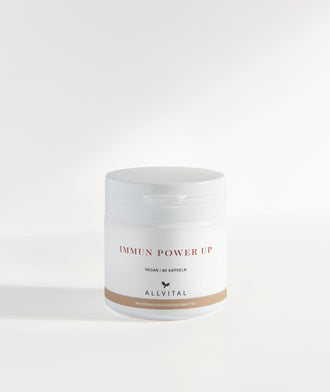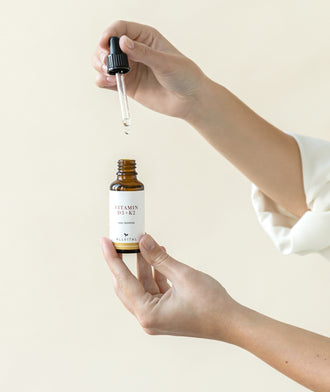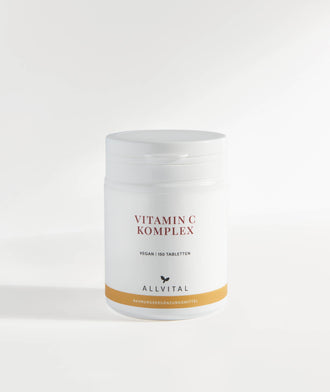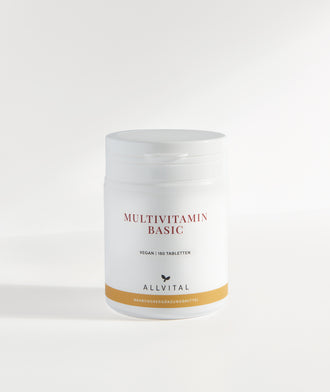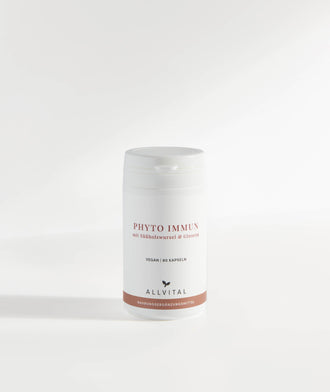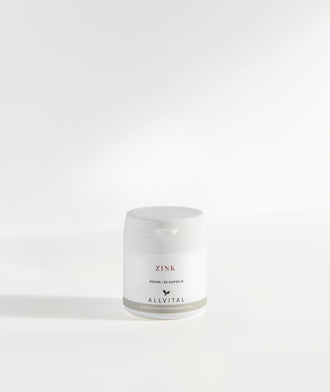
Naturally boosting the immune system
Our immune system works tirelessly every day to keep us healthy and protect us from harmful environmental factors. Here, you'll learn how to effectively strengthen your immune defences through healthy eating and lifestyle habits.The immune system has many tasks
The immune system is a complex network of cells, tissues, and organs that performs a wide variety of functions within the human body. Its main tasks include:
- Defending against pathogens: The immune system identifies and eliminates pathogens such as viruses, bacteria, and parasites.
- Eliminating abnormal cells: Mutated cells appear regularly in everyone’s body. Natural killer cells in the immune system identify and remove these cells.
- Removing waste products: Pathogens and other "waste" eliminated by immune cells are disposed of through the lymphatic system.
- Regulating inflammation: Inflammation is necessary to heal infections or injuries. The immune system manages the process, controlling both the onset and resolution of inflammation.
- Memory function: After exposure to pathogens, the immune system "remembers" them, allowing it to respond faster and more effectively in future encounters.
The health of our immune system is influenced by many factors. Below, we outline the most significant influences and explain how to avoid potential harms while actively strengthening your immune defences.
The role of nutrition in the immune system
Nutrition plays a central role in the health of the immune system. Foods rich in essential nutrients and low in harmful substances provide a strong foundation for a robust immune defence. In particular, fruits, vegetables, herbs, and spices like ginger and turmeric are packed with vitamins, minerals, trace elements, and antioxidant and anti-inflammatory plant compounds that promote immune function.
It’s important to consume these foods raw or lightly cooked to preserve their nutrients. High-quality proteins and fats, in moderation, also contribute to a well-functioning immune system.
These foods naturally provide many micronutrients that help strengthen the body. By supplementing a healthy diet with targeted nutritional products like Immune Power Up, you can further enhance your immune defences.
Conversely, an unhealthy diet can weaken immune responses, fuel inflammatory processes, and even increase the risk of allergies and autoimmune diseases. One critical link is the impact of poor nutrition on gut health.
The gut: Home of the immune system
About 70 to 80% of the immune cells are located in the intestinal wall, making gut health crucial for the immune system. Disruptions to the gut flora and barrier are often linked to weakened immunity or immune dysregulation, such as allergies and autoimmune diseases.
Foods that support gut health also benefit our immune defences. These include fiber-rich foods like fruits, vegetables, legumes, and chia seeds, as well as probiotic products like kefir, kombucha, and sauerkraut. Fiber serves as food for beneficial gut bacteria, while probiotic foods provide live microorganisms that strengthen gut flora.
To learn more about which foods harm gut health and what else to consider, check out our article "How a balanced intestinal flora benefits your health."
Strengthening the body's protective barriers
In addition to strengthening intestinal health, it is also important to strengthen our body's other ‘barriers’ to the outside world. These include the skin and the mucous membranes of the respiratory and urogenital tracts.
In our blog “Beauty from within: nutrients for skin, hair & nails” we introduce you to important micronutrients that are essential for healthy skin and mucous membranes.
Other tips for strengthening the skin and mucous membranes include:
- Using a moisturising nasal spray when the air is dry
- Use of indoor air purification devices
- Caring for the skin with pollutant-free lotions or creams
- Use of non-toxic sanitary products for women
Reducing stress for a stronger immune system
Chronic stress negatively impacts the immune system. Prolonged stress increases the release of cortisol, a hormone that weakens immunity by inhibiting the activity of immune cells, which in turn raises the risk of infections (1).
To reduce stress, consider practices like meditation, yoga, and breathing exercises. Physical activity, social interaction, and other activities that bring joy and relaxation also help relieve stress. Moreover, addressing the root causes of chronic stress is key—whether it's financial worries, relationship problems, or job dissatisfaction.
Sleep: The immune system's regeneration engine
Sleep deprivation has a well-documented weakening effect on the immune system. During sleep, the body repairs itself, and the immune system takes this time to repair cells and produce new immune cells. Deep sleep phases are particularly important for these processes.
Chronic sleep deprivation can lead to a disruption in immune function at multiple levels, increasing the risk of persistent inflammation (2) and reducing the activity of key immune cells, such as natural killer cells (3). This heightens the risk of infections and chronic diseases.
For healthy sleep, both the quantity and quality of sleep matter. Tips such as avoiding blue light before bed, ensuring a dark, cool room with good air circulation, exercising in the morning, and following a relaxing evening routine can improve sleep quality.
A regular day-night rhythm is also important for sleep quality. People who work shifts or night shifts often suffer from a disturbed biorhythm and less restful sleep.
Social connections and mental health
Relationships and a sense of belonging are vital for our overall health. Not only do they enhance mental well-being, but they also support various physical functions, including immunity.
Research shows that individuals with a strong social network have a more robust immune response. On the other hand, loneliness can weaken the immune system, as isolation tends to increase chronic stress (4).
Exercise: Finding the right balance
Physical activity has numerous positive effects on the immune system. Regular exercise boosts blood circulation and lymphatic flow, improving the transport of immune cells, antibodies, and cytokines, as well as the removal of toxins from the body. Sweating during exercise helps to eliminate toxins through the skin, while increased breathing aids in clearing mucus and pathogens from the airways. Exercise also helps reduce stress hormones, which can suppress the immune response, and temporarily raises body temperature, aiding the immune system in fighting off pathogens (5).
While exercise strengthens our immune system in many ways, overtraining without sufficient recovery can weaken the body and immune system, increasing susceptibility to infections and even reactivating latent viruses.
Further tips for a healthy immune system
In addition to the strategies mentioned, here are some more tips to strengthen your immune system:
- Avoid alcohol and smoking: Both habits overload the body with toxins and damage health in numerous ways.
- Stay hydrated: Adequate hydration improves blood and lymphatic circulation, ensuring that cellular processes run smoothly.
- Fresh air: Regularly ventilating your home improves air quality and positively impacts your mucous membranes. Air filtration devices can also be helpful.
- Natural sunlight: Exposure to sunlight supports the production of vitamin D and helps regulate the body’s circadian rhythm, which can improve sleep quality.
- Chew thoroughly, don’t overeat, and avoid drinking while eating: These habits enhance digestion and gut health, which can benefit your immune system.
- Sauna: The temporary rise in body temperature and increased sweating during a sauna session may also positively affect immune function.
- Exposure to cold: Cold showers and ice baths are simple and widespread measures to strengthen the body's defences. Regular short-term exposure to cold improves blood circulation, reduces inflammation and strengthens the body's defence against pathogens.
Conclusion: Small steps for a strong immune system
There are many habits you can integrate into your daily routine to boost your immune defences. It’s not about doing everything at once, but rather ensuring the basics—nutrition, sleep, stress management, and exercise—are covered. Gradually building healthy routines that you can consistently follow in your everyday life is key.
Sources
- Zefferino R, Di Gioia S, Conese M. Molecular links between endocrine, nervous and immune system during chronic stress. Brain Behav. 2021;11(2):e01960.
- Besedovsky L, Lange T, Haack M. The Sleep-Immune Crosstalk in Health and Disease. Physiol Rev. 2019;99(3):1325-1380.
- Irwin M, Mascovich A, Gillin JC, Willoughby R, Pike J, Smith TL. Partial sleep deprivation reduces natural killer cell activity in humans. Psychosom Med. 1994;56(6):493-498.
- Trachtenberg E. The beneficial effects of social support and prosocial behavior on immunity and health: A psychoneuroimmunology perspective. Brain Behav Immun Health. 2024;37:100758. Published 2024 Mar 18.
- Exercise and immunity. University of Florida Health [Internet]. [aufgerufen am: 14.10.2024].


